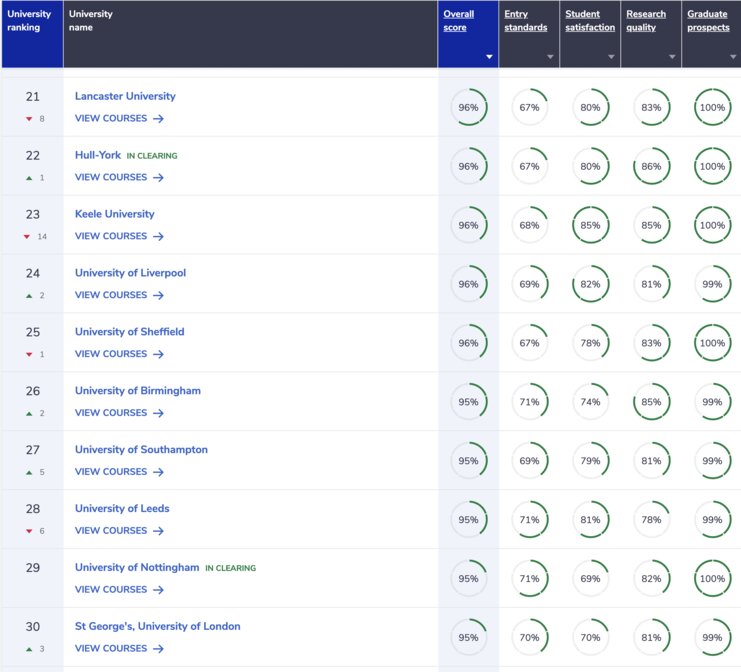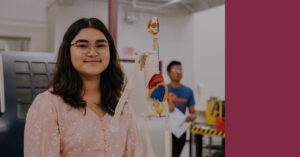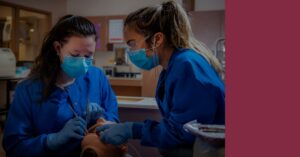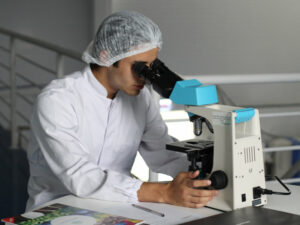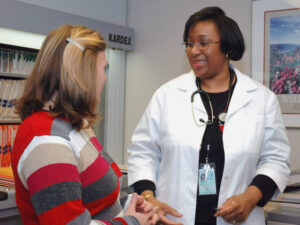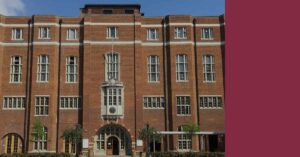Welcome to our UK Medical School Review series. In this series, we work with current students to produce an in-depth overview of each UK Medical School, covering what it is like to study there, how the course looks and what you need to get in.
Today, we are focussing on Sheffield Medical School, a member of the Russell Group of UK research-intensive universities. Adriana, a Sheffield Medic, will share her experiences and insights as a current student throughout.
Let’s get started with an overview of Sheffield Medical School…
Overview Of Sheffield Medical School
About Sheffield Medical School
The Sheffield Medical School predates that of the University by 77 years. Medical teaching began in Sheffield as early as 1811 by surgeon Hall Overend who set up his own school, receiving external recognition in 1828. The school went on to also be known as the Sheffield Medical Institution in 1829, Sheffield Medical School in 1865 and the Sheffield School of Medicine in 1868, collaborating with local hospitals to provide teaching. Once the University of Sheffield was established in 1905, the 2 merged and Medicine was a founding faculty. Since 2011 it is regarded as the Medical School and provides education for over 2,000 students.
The University of Sheffield offers 2 Medicine courses: the standard 5-year Undergraduate course, with an alternative Access Sheffield entry route for those from Widening Access backgrounds, and a 4-year accelerated Graduate course. Both lead to the award of a Bachelor of Medicine and Surgery (MBChB) degree. Sheffield also offers a 5-year Undergraduate Dentistry course.
Sheffield Medical School
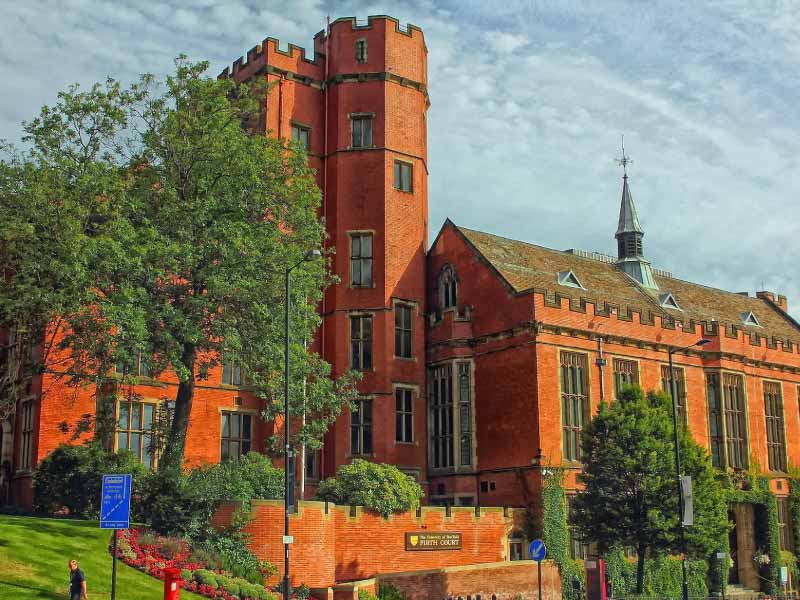
- University Age: 117
- UK Ranking: 25th
- Pint Price: £3.00
- Alumni Notability: 9/10
- A-level Requirements: AAA
- Places Available: 291
- Applicant Success Rate: 13%
- Teaching Style: PBL
- Interview Style: MMI
- Admissions Test: UCAT
Sheffield Medical School Alumni
Notable alumni include British Army medical officer William Barnsley Allen; Edward Mellanby, discoverer of vitamin D; Frank Ellis, a leader in the treatment of cancer by radiation therapy and Nobel Prize winner Sir Hans Krebs for his work in the study of cellular energy, namesake of the Krebs cycle.
Why did you choose to study at Sheffield?
“The teaching style is what first attracted me to Sheffield Medical School. There is an integrated learning and teaching approach, linking the clinical side of Medicine to the Medical Sciences behind it. The course includes clinical teaching on wards in hospitals, clinics, lectures, small group work and dissection. The combination of formal teaching and clinical work provides an ideal platform for learning because you can see the applicability of what you learn. Anatomy being taught through dissection was also an important factor when choosing to apply here.
I also chose Sheffield because of the big student population and the big community feel there is because of it. The amount of green spaces and the proximity to the Peak District also make it a great place to live in.”
What is the best thing and worst thing about your Medical School?
“One of the best things about it is the teaching style; being able to do anatomy through dissection is a real privilege and an amazing learning opportunity, as well as the early clinical exposure you get. These things really make a big difference in your learning. The support the Medical School gives you is also really great, throughout the 5 years you will always have someone to go to with any problems you may have, as well as someone checking up on you to make sure you aren’t struggling with anything.
The worst thing about it is probably the fact that you don’t have any exams until the end so in 1st year, your entire grade is determined by how well you do in the 3 exams you do at the end of the year, but some people could definitely see this as a good thing as you can be more relaxed throughout the year. Our summer holidays are also not as long as in other Medical Schools.”
Medical School Rankings
The following link will take you to the Complete University Guide Medicine League Table. Here, you can see that Sheffield Medical School takes the 25th position with an overall score of 96%:
The table also highlights 100% graduate prospects for Sheffield Medics so there’s little to worry about once you graduate!
Rankings will, of course, differ between other tables; the Guardian includes different aspects to the Complete University Guide. When making your own decision on which table to look at, think about what you place more importance on, such as spending per student or career prospects. Keep in mind that all Medical Schools are highly ranked with excellent ratings across the board.
Sheffield Medical School Fees And Financial Support
Annual tuition fees for home students to study Medicine at the University of Sheffield are £9,250. For international students, it is £38,050. Tuition fee loans are offered to all UK students by the Government and cover the course fees in full. Fees do not have to be paid upfront. If you need any assistance with costs, Sheffield offers bursaries and scholarships for students, as well as advice from the Funding Team.
What are the living costs like?
“Sheffield is not an expensive city to live in and since it’s very student friendly, you can get student discounts and deals in most places. The cost of a pint would usually range between £2 and £4 depending on where you go. The accommodation in the first year costs £150 on average, but this goes down in the following years when you move into houses, and on public transport, there are also student deals and the bus is £1. There is also a card you can apply for if you are between 18 and 21 years old that allows you to get the bus and tram for just 80p.”
Not sure where to start with your Medical School application?
Our Complete Bundle provides support for your Personal Statement, UCAT, BMAT and Interview and guides you to a successful application.
With our Complete Bundle, we guarantee that you will get at least one offer to study Medicine, or your money back.
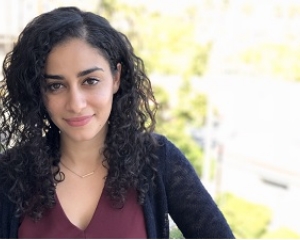

What Is Studying At Sheffield Medical School Like?
Teaching at Sheffield Medical School follows a patient-centred approach and aims to blend clinical teaching with the basic medical sciences from the very beginning. These 2 themes are taught in a variety of means including clinical teaching in primary and secondary care settings, lectures, seminars, tutorials, small group work and self-directed learning and development. Anatomy is taught via full-body cadaveric dissection.
Year 3 to 5 introduces students to full-time clinical placement, working in a range of local healthcare environments in multiple specialities. These are still complemented by small group work, seminars, tutorials and lectures and there is a strong emphasis on evidence-based learning, investigation and teamwork.

Sheffield Medical School Degree Content
The 5-year course is divided into 4 Phases: Phase 1, Introductory Clinical Competency (Year 1), Phase 2: Basic Clinical Competencies (Year 2 and 1st ½ Year 3), Phase 3: Extended Clinical Competencies (2nd ½ Year 3 and Year 4) and Phase 4, Final Preparation for Clinical Practice (Year 5). It’s modular and spiralling – what you learn will be built upon in later years.
A 2-week Multi-Professional Experience is included in Phase 1 where students are introduced to working healthcare professionals to gain an insight into the roles and importance of each member of the multi-disciplinary team.
Student Selected Components (SSC) are undertaken in Phase 1 focussing on the history of Medicine, critical analysis and communicating health information, beginning in the very first week of study. In Phase 2, students complete an SSC in Medical Ethics and Law. Final SSCs are completed in Phase 3.
Students must complete a 6-week research project at the start of Year 2, providing students with the opportunity to advance their research skills and learn more about their fields of interest.
In the 1st ½ Year 3, where students begin their full-time clinical placements, they are required to undertake a 12-week longitudinal integrated clinical placement (LICP1) to further their skills in clinical practice. These LICPs continue into Final Year where 2 more are completed.
During Years 3, 4 and 5 there is the option to intercalate should you wish to, it is not compulsory. This can take place either in Sheffield or at another institution and provides students to further explore interests.
To complete the degree and prepare students for entering their Foundation Years as a Doctor, you conduct a Student Assistantship at the end of Year 5.
Summary of the curriculum:
Year 1: Introductory Clinical Competency (Phase 1)
- Introduction to Medical Studies and Medical Sciences
- Introductory clinical competencies
- Systems-based learning and teaching (Cardiovascular, Respiratory, Gastrointestinal and Liver, Musculo-skeletal, Skin, Nervous, Genitourinary, Endocrine, Reproductive, Haematology, Immunology)
- Integrated Clinical Demonstrations
- Multi-Professional Experience
- Early Years General Practice Placement
- Community Attachment Scheme
- Public Health and Population Health Science
- Medical Ethics
- Personal and Professional Development
- SSCs
Years 2 and 1st ½ Year 3: Basic Clinical Competencies (Phase 2)
- Research Project
- Early Years General Practice Placement
- Clinical Attachments
- SSCs
- Clinical Medical Sciences
- Clinical Skills
- LICP1
2nd ½ Year 3 and Year 4: Extended Clinical Competencies (Phase 3)
- • Clinical Team Attachments
• Child Health
• Women’s Health
• Mental Health
• SSCs
• Medical Sciences
• Acute Clinical Care
• Continuing Clinical Care
• Community and Public Health
• Speciality Clinical Attachments
Year 5: Final Preparation for Clinical Practice (Phase 4)
- Final preparation for becoming a Junior Doctor
- LICP2 and LICP3
- Student Assistantship
The Access Sheffield scheme allows students from disadvantaged backgrounds, who achieve lower grades than those required, a chance to study Medicine. Each candidate’s circumstances are assessed during their application, with additional consideration and lower entry requirements offered. Once accepted to their course, these students follow the standard 5-year programme.
This course aims to teach students dental theory alongside clinical practice to prepare them for a career in Dentistry. This is done through 9 integrated themes that underpin the content of the course. Sheffield believes it is important to train the whole dental team together and therefore teach students alongside students on the Dental Hygiene and Dental Therapy courses. Teaching takes the format of lectures, tutorials, practical classes and clinical placements.
The Sheffield Graduate Course is 4 years. Year 1 (Phase 1) of the 5-year Medicine degree is bypassed on this course and students head straight into Phase 2. The research project at the start of Phase 2 on the Undergraduate course is replaced by a 6-week introductory module that recaps key elements of the bypassed Phase 1.
What Makes Sheffield Medical School Unique?
What makes your Medical School unique?
“Something that makes Sheffield Medical School unique is its early clinical exposure. This starts in 1st year through the Early Years GP sessions; in groups of 5 to 6 people you get assigned to one of the local GP practices that you will then visit every 2 weeks and it’s here where you get to learn about how the content learned in lectures is applied in a clinical setting. In most of these sessions, you also get to see a patient and speak to them and ask about the conditions they suffer from as well as how they cope with it and how it impacts their lives. The conditions the patients have will relate to the body system you’ve been covering that week in lectures.
Sheffield uses an integrated learning approach. This means that we have a range of lectures for the whole year group accompanied by small group teaching. This small group teaching is done through Integrated Learning Activities (ILAs), these are sessions where you discuss in your groups a clinical case in relation to what you’ve been learning in lectures at the time. Teaching at Sheffield Medical School is also system-based, meaning that you will learn anatomy, physiology, pathology, etc. of one system at a time, so all the lectures, ILAs (integrated learning activities), histology sessions, and dissection sessions you have will be focused on that specific system.”
Sheffield Medicine Selection Process
Stage 1: Applicants pre-screened against academic criteria.
Stage 2: Those meeting academic criteria are reviewed to determine if they surpass the UCAT threshold.
Stage 3: Scores over the UCAT threshold are then ranked.
Stage 4: Applicants with scores above the, then determined, ranking cutpoint are invited to attend interview.
Stage 5: Scores from interview are compiled and ranked and offers are made.
Sheffield Medical School Entry Requirements
| Exam | Undergrad Medicine |
|---|---|
| GCSEs | A minimum of 5 GCSEs at grade 7/A with at least grade 6/B in English Language, Mathematics and the science subjects. |
| A-levels | AAA including Chemistry or Biology and a 2nd science (including Biology/Human Biology, Chemistry, Mathematics, Physics or Psychology) and pass in the practical element of any science A-Levels taken. |
| IB | Overall score of 36 points with 6 in 3 Higher Level subjects including Chemistry or Biology and a 2nd science, and no less than 4 in all Standard Level subjects. |
| Other | EPQ, Scottish Highers, Welsh Baccalaureate. |
| Exam | Access Sheffield |
|---|---|
| GCSEs | A minimum of 5 GCSEs at grade 7/A with at least grade 6/B in English Language, Mathematics and the science subjects. |
| A-levels | AAB including Chemistry or Biology and a 2nd science (including Biology/Human Biology, Chemistry, Mathematics, Physics or Psychology) and pass in the practical element of any science A-Levels taken. |
| IB | Overall score of 34 points with 6 in Higher Level Chemistry or Biology, 6/5 in 2 further Higher Level subjects including a 2nd science, and no less than 4 in all Standard Level subjects. |
| Other | EPQ, Scottish Highers, Welsh Baccalaureate. |
| Exam | Dental Surgery |
|---|---|
| GCSEs | A minimum of 6 GCSEs at grade 7/A including Mathematics, English Language and science |
| A-levels | AAA including Chemistry and Biology/Human Biology. Pass required in practical element for science A-Levels |
| IB | Overall score of 36 points with 6 in Higher Level Chemistry and Biology |
| Other | EPQ, Scottish Highers, Welsh Baccalaureate, BTEC, Access to HE Diploma |
| Exam | Graduate Entry |
|---|---|
| Degree | An upper second-class honours in a Bachelors degree. |
| A-levels | BBB including Chemistry or Biology. |
| IB | Overall score of 32 points with 5 in Higher Level subjects including Chemistry or Biology. |
| Other | Welsh Baccalaureate. |
Craft an application worthy of Sheffield with 6med!
Our Complete Bundle provides support for your Personal Statement, UCAT, BMAT and Interview and guides you to a successful application.
With our Complete Bundle, we guarantee that you will get at least one offer to study Medicine, or your money back.


Sheffield Medical School Personal Statement
The University of Sheffield does not read or score applicants’ personal statements during the selection process, however, the content of it may be asked about in the interview so it provides a useful starting point for shaping answers.
Sheffield expects you to have undergone some work experience related to the healthcare field. This is to gain and prove you have some insight into the role, including the positives and negatives. Sheffield does recognise it can be difficult to gain work experience and will still consider alternatives such as volunteering, community work and experience working with a diverse range of people as acceptable. Hands-on experience as opposed to passive is also highly valued.
They are looking for you to reflect on skills you have learnt from experiences you have undertaken that make you fit for being a Doctor. These can include resilience, empathy, motivation, communication skills, teamwork and self-insight – the core values and skills of a good doctor.
The most important thing is to remember to be candid and know it inside out so you can draw on your experiences in the interview!
Sheffield Medical School Admissions Tests
UCAT
You need to undertake the University Clinical Aptitude Test (UCAT) in order to apply to the University of Sheffield. There is a minimum threshold that students must meet, set at 2430/3600 in the 2021-2022 cycle. If they surpass this, applicants are then ranked according to their UCAT scores and those scoring over the ranking cutpoint will be invited for interview. Where the cutpoint lies is dependent on the UCAT scores of all applicants meeting the academic and UCAT thresholds and therefore, a definitive cutpoint cannot be provided. However, for reference, the ranking cutpoint for 2021-2022 was 2780/3600.
Graduate applicants must also take the UCAT. The BMAT is not required.
Sheffield Medical School Interview
MMI Interview Style
Interviews for Medicine at the University of Sheffield are in the Multiple Mini Interviews (MMIs) format, consisting of 8 stations. The questions for the interview will be sent to each student with their invitation should they be invited. Sheffield Medical School interviews over double the available spaces on the course and the interviews typically take place from December to January.
Topics covered in the questions include communication skills, depth and breadth of interests, evidence of commitment for caring, knowledge of and interest in study in Sheffield, medical work experience/EPQ, motivation for Medicine, information processing skills, understanding the nature of Medicine, values and attitudes and finally, outside interests.
Each station is scored out of 5, with 5 being Excellent.
There is a 9th virtual station taken from applicants’ Situational Judgement Test scores in their UCAT. This is again scored out of 5, with more points awarded to the higher quartile your score falls in. The maximum score available is 45. Applicants are ranked based on their interview scores and those with the highest are offered a place to study Medicine at Sheffield.
Example Sheffield Medical School Interview Questions:
- Why do you want to study medicine at Sheffield, specifically? (2018)
- What would you do if you had no offers to study Medicine? (2019)
- Tell me about a time when you have made a positive impact in someone’s life? (2021)
- Why is consent important in healthcare? (2020)
- How do you cope in a new environment? (2020)
- Should doctors use social media? (2019)
- Why is treating a patient with respect and dignity important? (2021)
- Scenario involving an actor, who is a patient at your local GP surgery. You must speak to them to find out about their illness, and how it is managed? (2019)
- Why do you want to live in Sheffield for the next five years? (2021)
- What appeals to you about the Sheffield Medical School curriculum structure (2021)
- What clubs and societies at the University of Sheffield are you interested in joining? (2021)
- If I gave you a thousand pounds and you had to spend it on YOURSELF in the next hour what would you buy? (2021)
Extra-Curriculars at Sheffield Medical School
Outside of study time, what do most people get up to?
“Sheffield, as a city, has so much to offer with parks and green spaces as well as being close to the Peak District. There is a lot to do and the second the sun starts shining you will find every student gathered at the nearest park. The University is also quite big so there’s always lots going on around campus. The Student’s Union is one of the best in the country and you can find a society for literally anything you might be interested in. Sheffield’s sport facilities are also great and there are lots of different sports and teams you can be a part of, and I could not recommend joining a sport enough, you get to meet so many people and it’s great fun!
You will also get the chance to participate in Varsity which is a competition against Sheffield Hallam and the biggest event of the year. The Students’ Union also has its own Night Club that all students go to, especially for pop tarts, on Saturday and Sports’ Night which takes place every Wednesday.”
What is the Sheffield accommodation like?
“Most people in 1st year choose to live in the main accommodation sites which are Ranmoor and Endcliffe; these are basically like small villages with lots of different buildings. This creates a big community feel and it really helps you make friends because there are also a lot of common areas where you get to see and meet different people. It is also completely surrounded by trees and greenery and even has a small pond where people gather when the sun is out.
The accommodation is also only a 15-minute walk away from the Medical School and about 25 minutes, maybe less, from the main University buildings, and even if you don’t like walking there are constant buses that are £1 for students. Most of the rooms are also en-suite and they are very decently sized. The number of people living in 1 flat and therefore sharing a kitchen ranges from 6 to 12, but even if you have one of the bigger flats, the kitchen will be equipped accordingly.”
Sheffield Medical School Contact
Telephone: +44 114 222 5531
Email: [email protected]
Postal address:
The University of Sheffield,
Western Bank,
Sheffield,
S10 2TN,
UK
Advice for prospective sheffield medical school students
What advice would you give to a first-year student starting at Sheffield Medical School?
“Medical School can be a really daunting place, as well as intimidating, but it’s really important to remember that everyone is in the same boat as you and there’s no reason to be scared. Meeting people is a key part of making the transition from school to university as smooth as possible and the people in your course are the ones that are going to be with you for the following 5 years. Through getting to know each other and supporting each other throughout the difficulties of a career in Medicine, you will be able to make the most of those 5 years and have a really great time! It is also important to remember that there are points where you are going to struggle more and that is normal, you just need to know that you don’t need to deal with that by yourself and that there is support available and people that will be more than willing to help you.
I would also recommend maintaining a good work-life balance; doing well in your degree is important but so is having other interests and hobbies outside Medicine, because otherwise Medicine will become really draining and having that balance is what will allow you to have a good time and also stay motivated.”
Check out our other UK Medical School Reviews:
Not sure where to start with your Medical School application?
Our Complete Bundle provides support for your Personal Statement, UCAT, BMAT and Interview and guides you to a successful application.
With our Complete Bundle, we guarantee that you will get at least one offer to study Medicine, or your money back.


By Phoebe Baker
